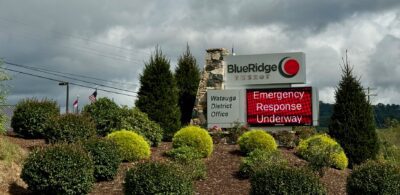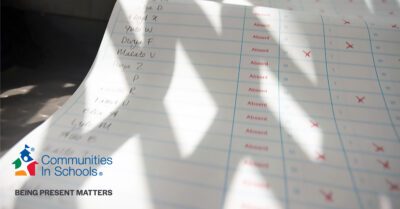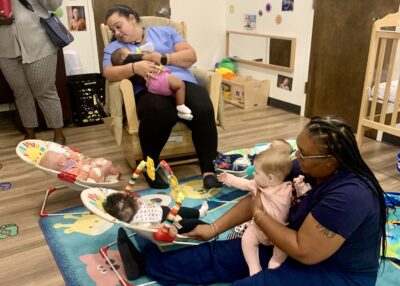
In August 2021, Charlotte-Mecklenburg Schools (CMS) embarked on a new journey rooted in the science of reading, a research base on how children learn to read.
Navigating the challenges of COVID-19 guidelines and a return to in-person learning, many staff members were initially apprehensive. However, the district’s prior adoption of a knowledge-building curriculum in 2019 helped bridge the gap between theory and practice.
As teachers began their science of reading training, they found the connection between research and curriculum undeniable, answering the critical question: Why the change?
For a firsthand look at this transition, we turn to the story of Lisa Debo, a dedicated first-grade teacher at McAlpine Elementary. Lisa’s journey from balanced literacy to structured literacy offers a glimpse into the transformation that’s reshaping how reading is taught in CMS.
Lisa is more than just a classroom teacher. She works closely with the CMS Elementary Academics Department, creating district resources, designing digital content, and leading professional development sessions. Her true passion, however, lies in guiding young learners through the complexities of reading development.
Motivated by the diverse needs of her students — particularly those struggling with reading — Lisa began her transition to structured literacy in 2019, when CMS adopted the EL Education curriculum.
“I became curious to understand the why behind the content and methods of instruction,” Lisa said. “When I stumbled upon Emily Hanford’s podcast, ‘What the Words Say,’ it all began to make sense. Word recognition and language comprehension are both essential components of learning how to read. There were many pieces that were missing with a balanced literacy approach, and I became eager to learn more behind the research and science of reading.”
From there, Lisa fully embraced the science of reading. The journey wasn’t without challenges.
“The biggest challenge was wanting to learn and implement everything at once,” she said. “In 2020, I received training in Orton-Gillingham, a multisensory phonics technique for remedial reading instruction. Immediately after receiving the training, I began to teach the reading intervention groups in first grade. The students made rapid progress with their decoding and encoding skills, and I began to take some of the instructional techniques I learned into my general education classroom.”
As a result, Lisa became a local LETRS (Language Essentials for Teachers of Reading and Spelling) facilitator, eager to share her knowledge with fellow educators.
Today, Lisa’s classroom is a testament to the power of structured literacy. Explicit phonics instruction, combined with engaging routines that incorporate movement and music, has dramatically improved student outcomes. One standout activity involves students using rhythm sticks to tap out sounds in words, making phonemic awareness both fun and effective.
In her classroom, every student benefits from this systematic approach to reading. Using diagnostic assessments, Lisa tailors instruction to meet the needs of all learners, including students with dyslexia and those at risk for reading difficulties. Through flexible grouping, she ensures each student receives the support they need to succeed.
For educators considering the shift to structured literacy, Lisa offers simple but powerful advice: “Take one step at a time. Choose an area of the reading rope and learn all that you can about the why and how.”
She highlights, “Science of Reading: The Podcast,” and the Facebook group, “Science of Reading— What I Should Have Learned in College,” as invaluable platforms for learning and support. Lisa’s story is just one example of the impact the knowledge of the science of reading is having on students in Charlotte-Mecklenburg Schools.



